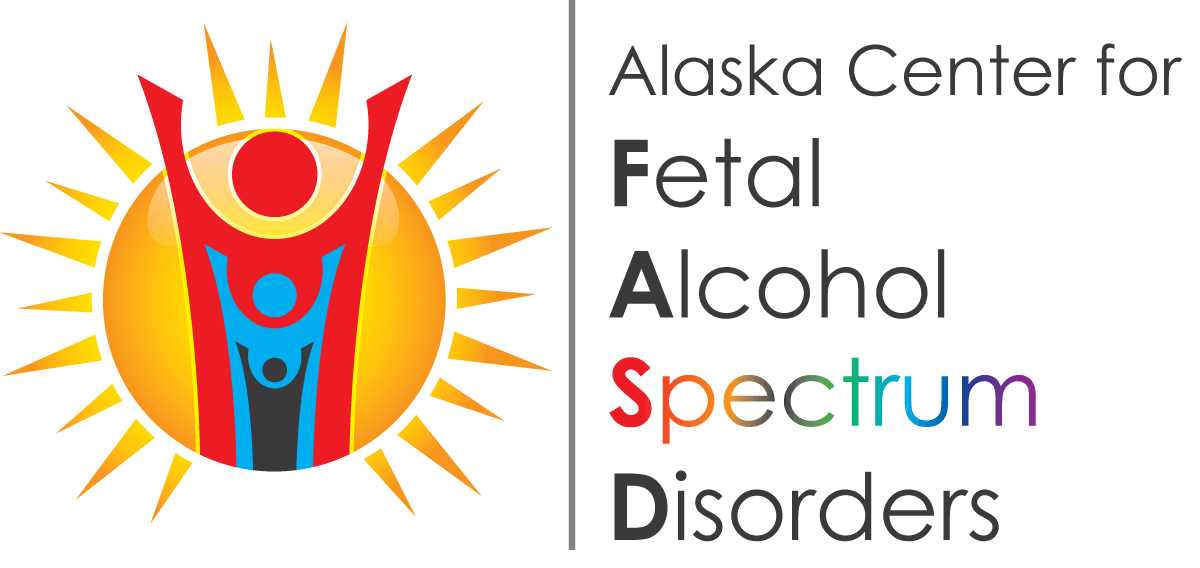Other Caregivers
Thoughts for DD Staff Consideration
Although FASDs often manifest in similar ways to other brain-based conditions (particularly Autism), FASD is not a qualifying diagnosis for support services by itself. Just because a person experiences an FASD does not automatically mean that they will qualify for specialized support services through their school or the Medicaid Waiver program. See State of Alaska qualifications. In the education system, students who have a diagnosis of FASD fall under the category of Other Health Impairment and can have an Individualized Education Plan (IEP) IF they have deficits (i.e. in reading, writing, math, social skills, affective skills, and related service areas). Unfortunately, those who have a diagnosis of FASD may still have a difficult time obtaining supports and services that will help them reach their full potential.
The State of Alaska funded FASD-specific services for a short period of time and there was discussion about creating a special waiver for individuals experiencing FASDs. However, the number of individuals diagnosed with Autism Spectrum Disorder sky-rocketed and local and national attention shifted away from FASD and more toward supporting individuals who experience Autism. It is important that individuals who experience Autism receive supports and services, too, but the challenges for those impacted by FASDs did not disappear when the focus shifted. FASDs took a back seat in priority and funding, but there are still many Alaskans living each day with the impacts of an FASD. It is also important to note that symptoms of FASD and Autism can be similar. We are aware of individuals in Alaska who have been given an autism diagnosis in error.
It is important for the service provider, to understand both the similarities between FASDs and other brain-based differences and how the unique individual/client experiences FASD. Use the information on this website to gain understanding about how FASD impacts people generally, then think about how the individual/client might be impacted. If the service provider is fortunate enough to work for an agency that provides staff training specifically around FASDs, take advantage of those training opportunities to learn more! Search for a course about FASDs on the Alaska Training Trust Cooperative website, Alaska Center for Resources Families, or ce4less.com and take advantage of those educational opportunities. A service provider may also have access to information about the client’s FASD evaluation findings as this information provides a helpful ‘roadmap’ in terms of their specific areas of strength or challenge so that you can ‘play to their strengths’ and support their needs better.
Finding a mix of interventions that work can bring great joy to both the service provider, other caregivers, and client. Learning to accept the achievement of smaller more manageable goals, focusing on the strengths, and using information from this strategies video to shore up the challenge areas are all helpful ways to promote success and a life well-lived for the individual who experiences an FASD. The FASD Support Network of Saskatchewan Inc. has a nice summary document that provides twenty FASD TIPS for Parents and Caregivers. If working with adults, Supporting Success for Adults with FASD is a terrific resource document.
Support also can be found at local family support or parenting or mental health care programs, Help Me Grow Alaska resources, local and online parent support groups, and online. Ongoing research is being done to determine strategies that best help both parents and children as they move on the journey of growing up with FASD. A new app called Families Moving Forward Connect will be in a final phase of testing in early 2021 and is looking for study participants who want to try using the app.
We encourage caregivers to help the child or youth who experiences an FASD to explore and discover their passions as this has a huge impact on their self-esteem and skills development and can help them find a peer group. We know that many individuals who experience an FASD have excellent artistic, musical, and other talents. See this website for ideas on how to promote resiliency.
Ask your agency to contact the Alaska Center for FASD to arrange a movie training event: Moment to Moment: Teens Growing Up with FASD is a 59 minute documentary that profiles 4 teens, their families, and provides great information about the brain-based reasons for commonly seen behaviors, the teens’ perspective of their disability, and their families journey. We follow this with a panel of self-advocates and can do this virtually if necessary for statewide reach.
By educating yourself, you can support both the individual in your care and their family members and set up a system wherein the person can reach their potential and enjoy success. Being patient and having an open, non-judgmental heart will go a long way toward supporting the individual/client who experiences an FASD. Being educated in how their brain works differently and in some tools and techniques that have helped other people with FASDs achieve success will empower the service provider to act as an advocate for them and help them build their own “toolbox” of skills and strategies they can use to achieve their goals and make their dreams come true.
Remember, people who experience FASDs are people who experience FASDs. They have the same dreams for the future, the same desire to be appreciated and loved, the same hope to live a successful and meaningful life that any of us have. You can support those dreams, desires, and hopes by educating yourself about FASDs and applying the information you learn to the unique individual you are lucky enough to support.
